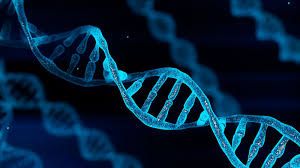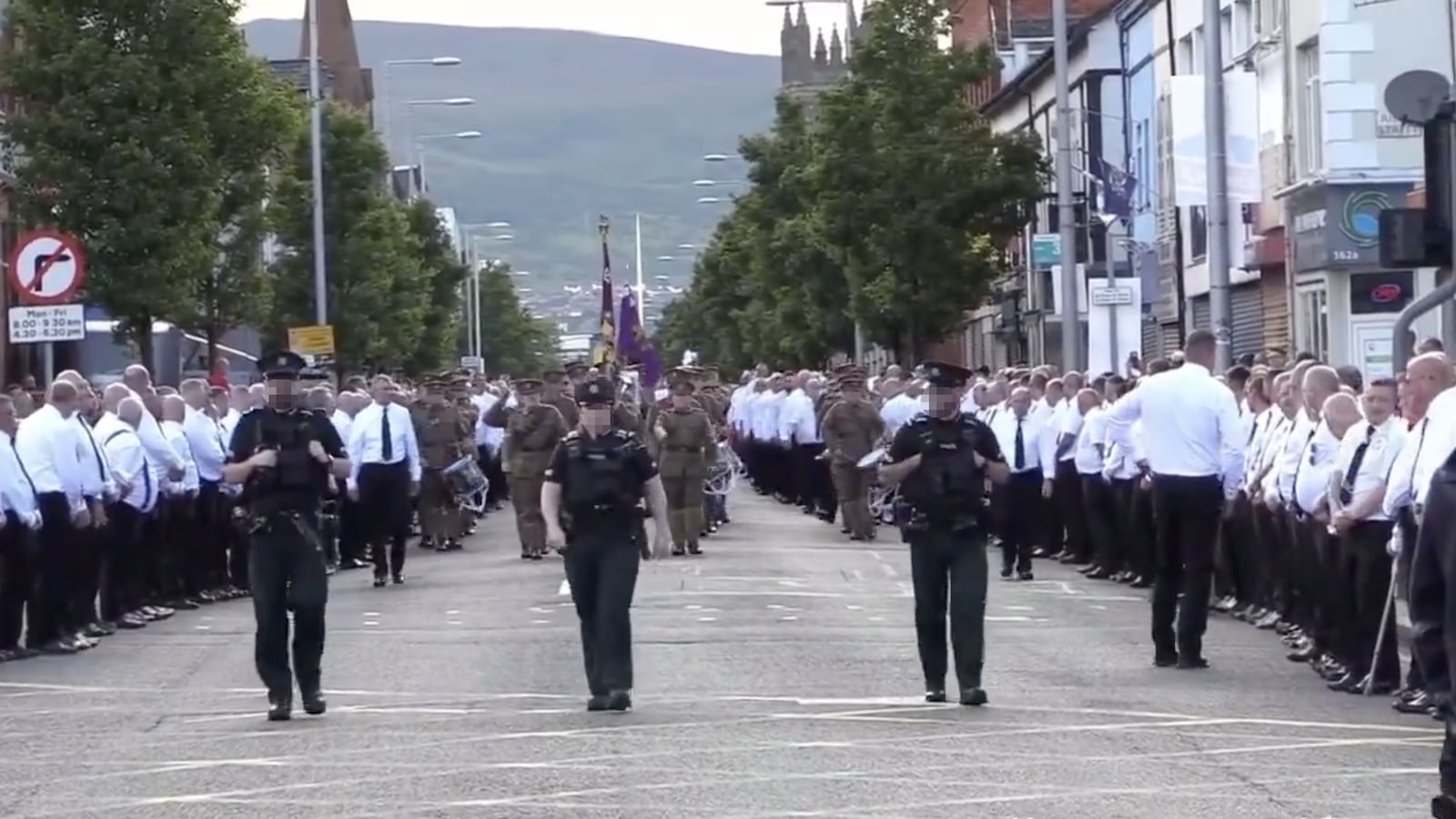SQUINTER has no idea why when he rubbed the sleep from his eyes and blearily contemplated the local news on his phone on Monday morning the BBC Ulster website had exactly zero space for the biggest story of the weekend.
2,000, 1,500 or 1,000 UVF men (depending on where you looked online) took over the Lower Newtownards Road on Saturday in a memorial parade for sectarian killer Robert ‘Squeak’ Seymour. ’Parntly they weren’t just there to pay tribute to Squeak; ’parntly they were there to send out a message to one UVF drug-dealing thug that their UVF drug-dealing thug was now in charge.
Whatever the case, there they were, hundreds and hundreds of mostly middle-aged, mostly overweight and mostly bald loyalists lining the road as the Kick the Pope bands passed by thundering out their drum and flute tributes to Squeak’s prowess as a killer of Catholics. And at the head of the marching musicians, two police motorbike outriders and three officers in PSNI polo shirts and caps.
The story didn’t make the cut at the first BBC Ulster editorial meeting of Monday morning, being squeezed out on the website by an eyepopping report of a cow that got stuck in muck in County Down and one about a fish kill in County Derry. Squinter tweeted his surprise when he got into the office and – hey, presto! – an hour later there was a report on the UVF show of strength.
Tell me, were the fat baldy blokes in the white shirts and black ties on the Newtownards Road on Saturday the good UVF drug-dealers with a PR department?
— Squinter (@squinteratn) June 18, 2024
Or were they the bad UVF drug-dealers the good UVF is trying to sack?
It's so hard to keep up sometimes.
It would be immodest of Squinter to claim credit for the change of editorial heart. For all we know BBC Ulster had a report up on Sunday and it got bumped in favour of the cow and the fish on Monday, only to be reenergised later in the morning by the post-weekend interest in the story. Away from the Beeb, what’s beyond question is that those unionists who for four years have been obsessed with the Bobby Storey funeral for some reason had suddenly and mysteriously lost interest in the subject of older guys in Primark white shirts and black ties when they were to be found in large numbers in East Belfast.
The righteous indignation at the idea of men in white shirts and black ties at a funeral was nowhere to be found when it come to men in white shirts and black ties taking to the streets as a power-play in a UVF battle for supremacy. Struck dumb, they were, although to be absolutely fair to the UUP, one of their blokes blamed the PSNI for the spectacle, opining that a lack of resources was to blame for the takeover and not the armed and murderous narco-gang behind it.
Which was nice.
Grand designs for children
THEY say things are different with a grandchild – and as a relatively new grandfather Squinter can say they’re right. They say that the love you feel for them is deeper on some level than the love you have for your children – and they’re right. And for some reason that doesn’t seem to annoy the non-grandchildren children.
The simplest explanation for this would seem to be the only one you need – and that explanation is that you get all the good stuff without the tough stuff. You get the smiles and the hugs and kisses, but you don’t get the sleepless nights; you get the days out, but afterwards you get to hand them back and draw a breath.
But there’s something deeper than that, Squinter reckons – and he reckons that something lies deep in the DNA. An explanation...
The impulse to reproduce in humans is powerful, just as it is across the natural world. It’s why we spend so much time seeking partners, long-term and short-term; it’s why we’re so protective towards our progeny when we finally deliver what nature demands of us. And we do all of this without thinking. Our urge to pursue partners is not something we decide to do when we get up in the morning; the depth of our desire to look after our children is not something that can be taught or learned. It’s all buried somewhere deep in the DNA, part of the same suite of instinctive urges that includes eating and breathing and avoiding getting hurt or killed.
And if we’re extraordinarily protective and proud of having ourselves produced a child or children, then aren’t those primeval requisites going to be heightened by the knowledge that our progeny have in turn produced progeny? That we have succeeded through our children in ensuring the future of the human race even when we’ve stopped contributing directly to its numbers? Is the extreme attachment we feel to our grandchildren a kind of biological pat on the back?
EXTREME ATTACHMENT: Is it DNA – or something less complicated?
Who knows? For now, Squinter’s too busy wondering whether his ma might not have been right after all when she said that a child with its shirt tail hanging out is in imminent danger of kidney collapse. He’s reconsidering the position firmly held with his own three children that getting caught in the rain is entirely harmless and does not after all place a child in imminent danger of pneumonia. In other words, with his grandchild he’s reverting to the kind of half-learned, half-instinctual beliefs held by the adults of his own childhood.
Squinter knows a child with its lower back exposed by a loose piece of clothing to a June breeze – even one as unseasonably cool as the ones we’re having – is not in imminent danger of kidney damage. He knew that with his children, but now he figures ‘Why take the chance?’ and tucks the t-shirt in. He’s clear in the knowledge that a shower of early summer rain will under no circumstances lead to infectious inflammation of the lungs’ tiny air sacs, but now he reckons that there are indeed more things in Heaven and Earth that are dreamt of in your philosophy, Horatio.
And as the parents of the past quite correctly pointed out, scientists don’t know everything, do they?







